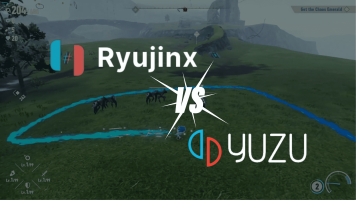For the Polish company that often cites commercial preservation as one of its primary aims, it was a major win, giving old and new players an easy way to officially acquire the uncut versions of the survival horror classics. However, it also got people wondering what exactly went into bringing them back, and perhaps more interestingly, whether we'll see any more classic Capcom titles coming to GOG in the future.
So, earlier this month, we reached out to GOG and put some questions to Marcin Paczyński, the senior business development manager at the company, to learn more about the company identifies its preservation projects and to try to tease out as much information as we could about the company's future plans.
Let's start with the incredible Resident Evil news. I'm wondering, how long has GOG been speaking to Capcom about bringing the original Resident Evil trilogy back to PC? What made Resident Evil a perfect candidate to bring back to the storefront?
Paczyński: Talking to the publisher is almost always the trickiest part of such re-releases – with Capcom, we started our conversations back in 2022 but it was not the first time we tried to bring those games to GOG.
Usually the way we select those titles is our Community Wishlist. We look at what our community really wants, what they vote for; it really matters to us. Once we select those desired titles, we evaluate their state: the original Resident Evil trilogy wasn't available, up until now, anywhere. The very source of one of the most popular franchises, games that shaped the entire genre, childhood memories of so many people, simply gone, impossible to access again. Of course, there's enthusiasts that collect old consoles, do emulations, etc., but we're talking about general, easy access to the game, for everyone, for future generations that couldn't enjoy it on the release – these kinds of situations, combined with community's voice, are ones that shape perfect candidates for GOG, they are the core of our mission.
Paczyński: A lot of factors play a part in bringing a game back. Sometimes it's extremely difficult to find out who's the owner of the game's rights; sometimes we have a hard time convincing publishers that it's actually something worth doing. Once we get to work on the build itself though, we're extremely lucky to have an amazing team of tech magicians on board; some of them have over 15 years of experience in game preservation projects. Making them compatible with modern systems (Win10 and Win11), getting rid of DRM, adding modern controller support, achievements, and upscaling the graphics quality – it's our thing, it's what we do best.
When it comes to Resident Evil's re-release, we couldn't have been happier with how it came to life.
A lot of people are wondering whether these Resident Evil re-releases might open up the door for other Capcom games to come to GOG like Dino Crisis 1 & 2. Have you had any discussions with Capcom about making these games available again? Is there anything you can share?
Paczyński: While we can't disclose any details regarding our future plans, one thing we can say for sure – with the release of Resident Evil, we worked very closely with Capcom, and our relationship definitely grew in the process. Combined with such overwhelmingly positive reactions from the community, we will surely do our best to bring even more Capcom classics to the table, so keep your fingers crossed.
Of course, these three Resident Evil games aren't the only titles you've made commercially available again this year after a long absence. This past March, GOG was also involved with the return of Alpha Protocol to PC five years after it was removed for licensing issues. Could you give us some insight into GOG's involvement in bringing that game back to PC? Were you the instigators there? Or did SEGA approach you?
Paczyński: Publishers hardly ever reach out to us for the re-release – it's us, selecting games, getting contacts, initiating, convincing.
With Alpha Protocol, too, it was indeed us who approached SEGA with this project – and once we convinced them that we're the right partner for it, we were met with an incredible enthusiasm from their side. They supported us all the way through, took care of licensing issues; they also got us access to the source code, which we rarely have an opportunity to work on. After everything was confirmed, our involvement meant preparing the build, making it playable again, getting rid of the DRM, fixing some bugs and adding all the quality-of-life improvements, controllers and achievements support, you name it. Overall, we couldn't be more grateful for SEGA's support and involvement, it was an amazing experience.
Paczyński: While we can't say anything upfront – you can be sure that this is going to be an exciting year for GOG! We could definitely tease you to be particularly vigilant around the time of our Sweet 16 anniversary.
How do you measure the success of the preservation work that you're doing? Is it purely sales-driven?
Paczyński: When a game gets released, that's success for us – because that means it's preserved, it's now available again, can be downloaded alongside offline installers and played DRM-free, hassle-free and on modern systems. There is, of course, the sales aspect, which is extremely important; we're a company like every other, we need profit in order to exist and continue our preservation work. But you can be certain: if we manage to rescue a game, that's success, that's our mission and the reason we exist. For me personally, I love reading comments on our forum from people who are happy to be able to play this game again.
And lastly, why do you think it's important for these games to be readily available DRM-free?
Paczyński: I think this goes for all games, not only the classics we bring back – in the era of subscriptions and licences, it's nearly impossible to own a piece of media. Remember times when we could just put video games on our shelves, in boxes? Nowadays, someone can just come in and snatch these boxes from your shelf, and no one can do anything about it… Except when there's no DRM. You buy something without DRM, and it gives you a true sense of ownership, the freedom of it; you don't need an internet connection, you can store offline installers on external hard drives, you can do whatever you want. Nothing is really preserved if it has DRM in it – that's why we're so committed to releasing all our games DRM-free, both popular AAA titles and re-released classics.





